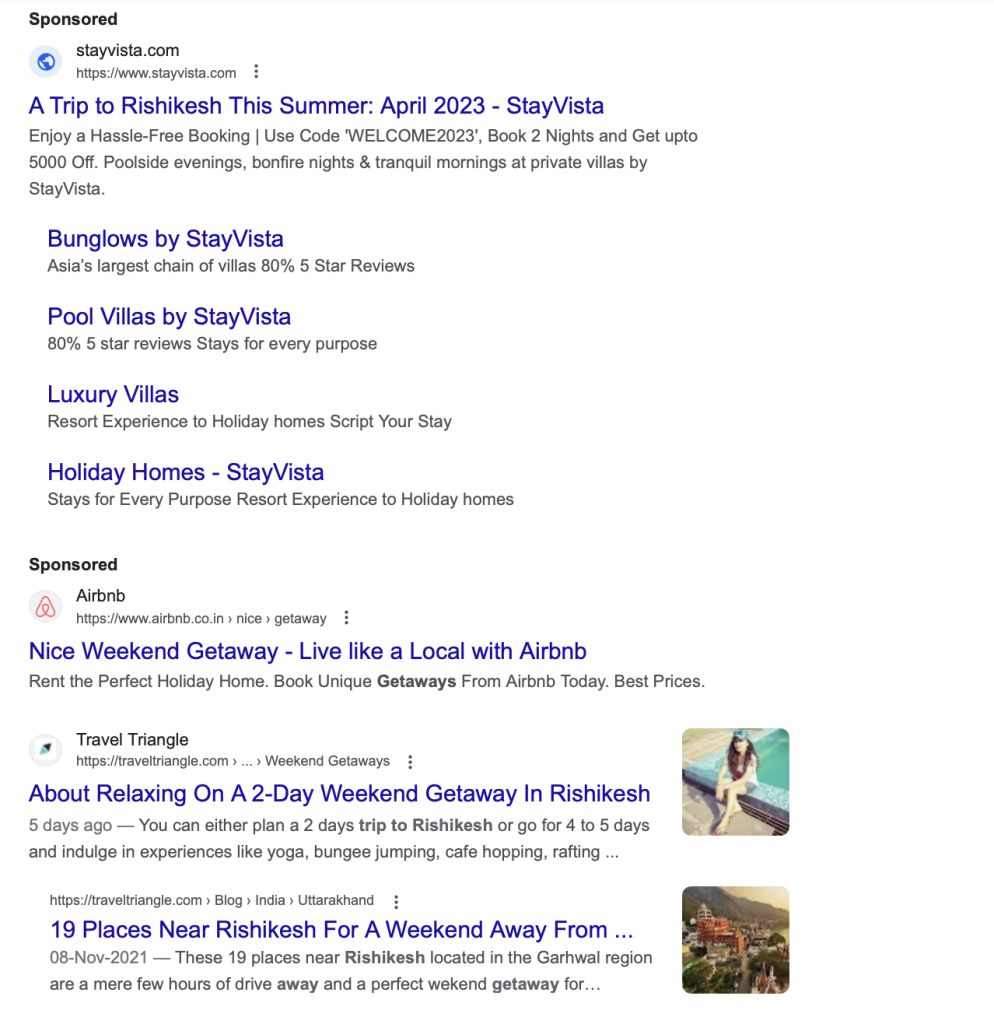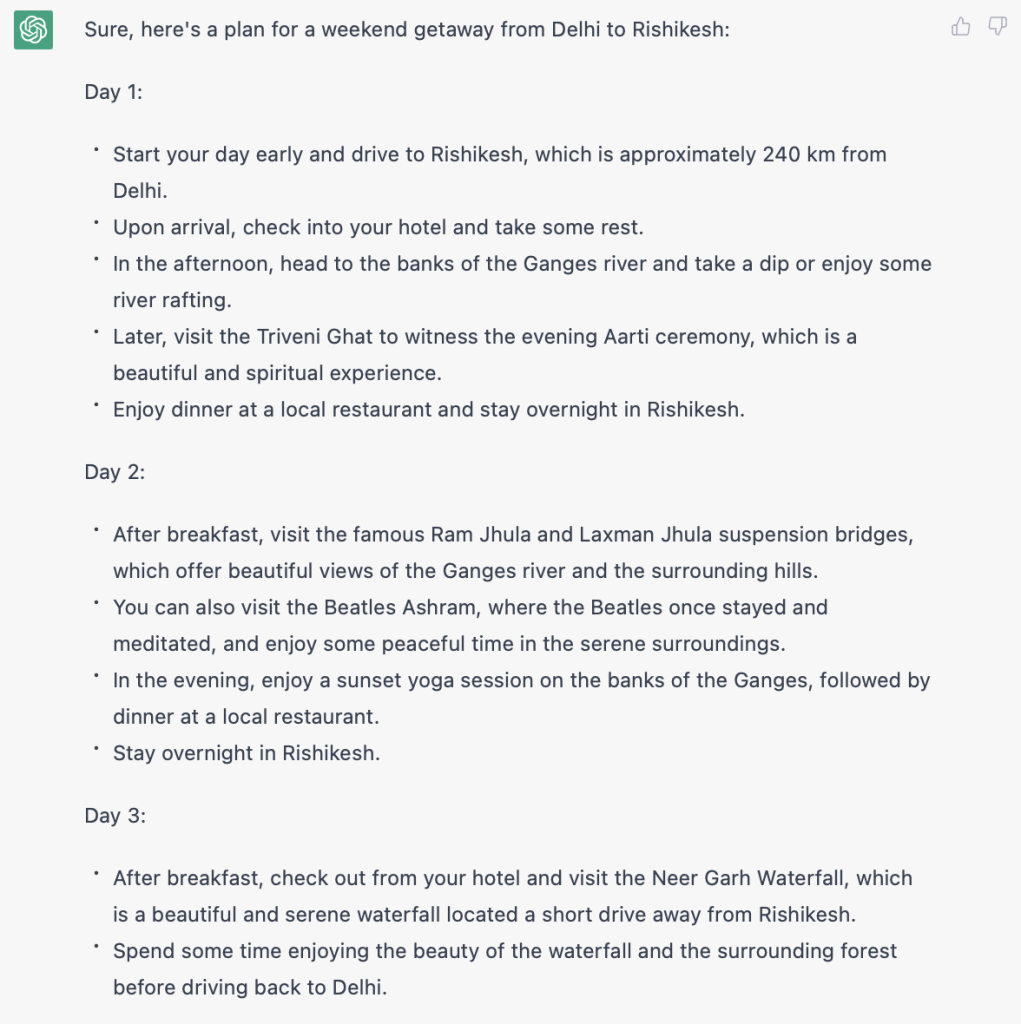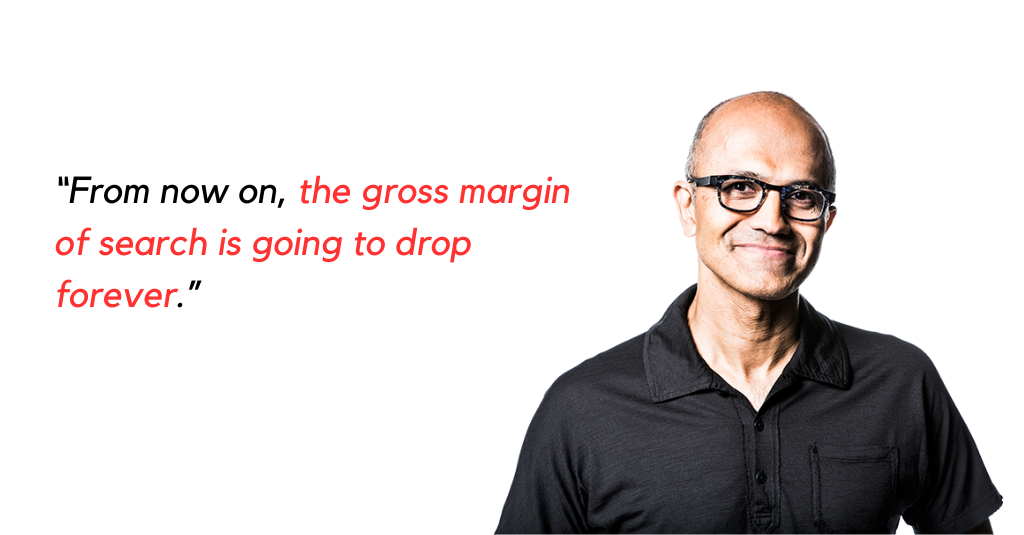As an advertiser or part of a marketing function, it is important for you to take note of the fact that the search engine market is undergoing significant changes due to the emergence of AI-driven search technologies. These changes could potentially impact the effectiveness of traditional keyword-based search advertising models, which could have a significant impact on advertising budgets and marketing strategies.
The fact that code red was issued with Google co-founders Larry Page and Sergey Brin being pulled out of retirement to address these concerns underscores the seriousness of the situation. It clearly suggests, and at the very least, that Google recognises the need to innovate and adapt to these changing market dynamics in order to maintain its dominance in the search engine market.
This is inspite the fact that Google has almost 85% share in search up against 9% that Bing holds and yet here we are with Brin apparently pushing the code for the first time in years. So what is making Larry Page and Sergey Brin so worried after all these years?
Well, one name…ChatGPT.
Microsoft has demonstrated a significant investment in OpenAI, having made an early bet on the technology and recently providing an additional $10 billion in funding. Microsoft CEO Satya Nadella has announced that the latest version of Bing will be powered by OpenAI, which will allow users to ask questions and receive answers directly, rather than being directed to traditional search results pages. This integration of OpenAI technology into Bing marks a significant shift in how search engines operate, as it provides a more intuitive and personalised experience for users.
The integration of OpenAI into search engines like Bing represents a major shift in the way that people interact with the internet and the advertising business model that has traditionally been associated with it. This development has significant implications for advertisers, as the structural model of internet search and advertising is undergoing a complete transformation.
The launch of ChatGPT and its partnership with Microsoft Bing, along with the emergence of similar AI-driven technologies from companies like Neeva and You.com, have disrupted the search engine market and created a significant challenge for Google. In order to remain competitive in the face of disruptive AI-driven search technologies, Google will likely need to make significant changes to the way that consumers search for information. This involves investing in and developing new technologies that provide more personalized and conversational search experiences.
Additionally, Google may need to reduce the profit margins generated by search advertising in order to remain competitive with alternative search engines powered by AI.
Advertisers will need to adapt to this changing landscape by exploring new approaches to advertising that leverage the power of AI and personalized search experiences. The successful integration of OpenAI into Bing is a clear signal that this is the direction in which the industry is headed, and forward-thinking advertisers will need to keep up with these developments in order to stay ahead of the curve.
So how does this affect your advertising budget?
Before we get into how this affects your advertising dollars, let’s first understand the purpose of these AI chatbots and how that is going to directly impact your demand for advertising units.
These AI-driven chatbots are essentially automating the process of gathering information and completing tasks that we would have had to do manually before. For example, if you wanted to plan a weekend getaway from Delhi to Rishikesh, instead of having to spend hours searching on Google and different websites for information on travel, stays, parking, excursions, and more, you can simply have an AI-driven chatbot integrated search to gather all that information for you and help you plan your trip more efficiently.
In a snapshot, this is how the transformation looks as a search result:


It is apparent that in current scenario Google has ample opportunities to plug relevant ads on search result pages as well the subsequent click through pages but these opportunities shrink the moment AI chatbots do the legwork offering consumers’ better and organised information they could really use. Which in turn means that as an advertiser your demand for ad units needs to adjust because many of those ad units you bid for would cease to exist with rising adoption for AI based chatbots as an integral part of consumer search.
What it means for Google?
In an interview with the Financial Times, Satya Nadella stated that “From now on, the gross margin of search is going to drop forever.”, indicating that Google’s profit margin may soon take a hit. This suggests that search engines may now be in a potential race-to-the-bottom, where they are competing to gain more users by undercutting each other on price. This could further threaten ad availability and pricing, as search engines try to stay competitive.
Additionally, Morgan Stanley has estimated that the cost of providing an AI-driven search answer is roughly seven times higher than the cost of current search. This is due to the significant amount of cloud computing required to successfully run an AI chatbot. For a company like Google, if 10% of their search queries successfully shift to their AI chatbot, known as BARD, it could add between 700 million to 11 billion dollars in operating costs alone.
A classic innovator’s dilemma: Google can either continue to focus on their current profitable products and risk becoming obsolete in the long run, or invest in the new technology and potentially cannibalise their own profits in order to stay relevant.
Microsoft and other companies may be willing to invest in their AI algorithms and technology, even if it means sacrificing profits in the short term. By gaining a larger market share and collecting more data, these companies can train their algorithms to become smarter and more efficient, ultimately providing a better user experience.
So yes, in a nutshell, we are stepping into the future with more expensive and less available search advertising.
So what should advertisers do now?
Well to begin with, It is important for marketers to consider if they are over-invested in search because its measurement is perceived as much easier. At SYNC, we have deployed thousands of incrementality experiments across various business categories. Through our extensive experience, we have found that the most important area for marketers to invest in is ‘search’.
So regardless of whether the new changes in the search landscape come to fruition or not, it is essential to start exploring how to shift your advertising budget from demand capture to demand creation. While it may seem daunting to move away from demand capture, it is highly likely that you can make the shift without negatively impacting your top line, while adding to the latter quite successfully.
With the help of scale testing, SYNC OS empowers marketers to stay ahead of the curve by diversifying their media mix beyond search and into other profitable channels. Our proven incrementality experiments pressure test new media channels against smaller but statistically relevant audiences and geographies, enabling us to explore new platforms and strategies confidently. By doing so, we can confidently test new platforms and strategies at conservative spending levels, allowing us to determine whether they are effective before scaling up to larger, national spend levels.
As Satya Nadella said, “it’s a new day in search and rapid innovation is going to come.” Suddenly, the previously stable world of search is now on shifting ground. Since we cannot predict where it will eventually settle, it is in the best interest of advertisers to start experimenting with new outlets now, before they may be required to do so.
To learn more about how to diversify your media mix beyond search to other profitable channels feel free to CONTACT US for more information.

Leave a Reply